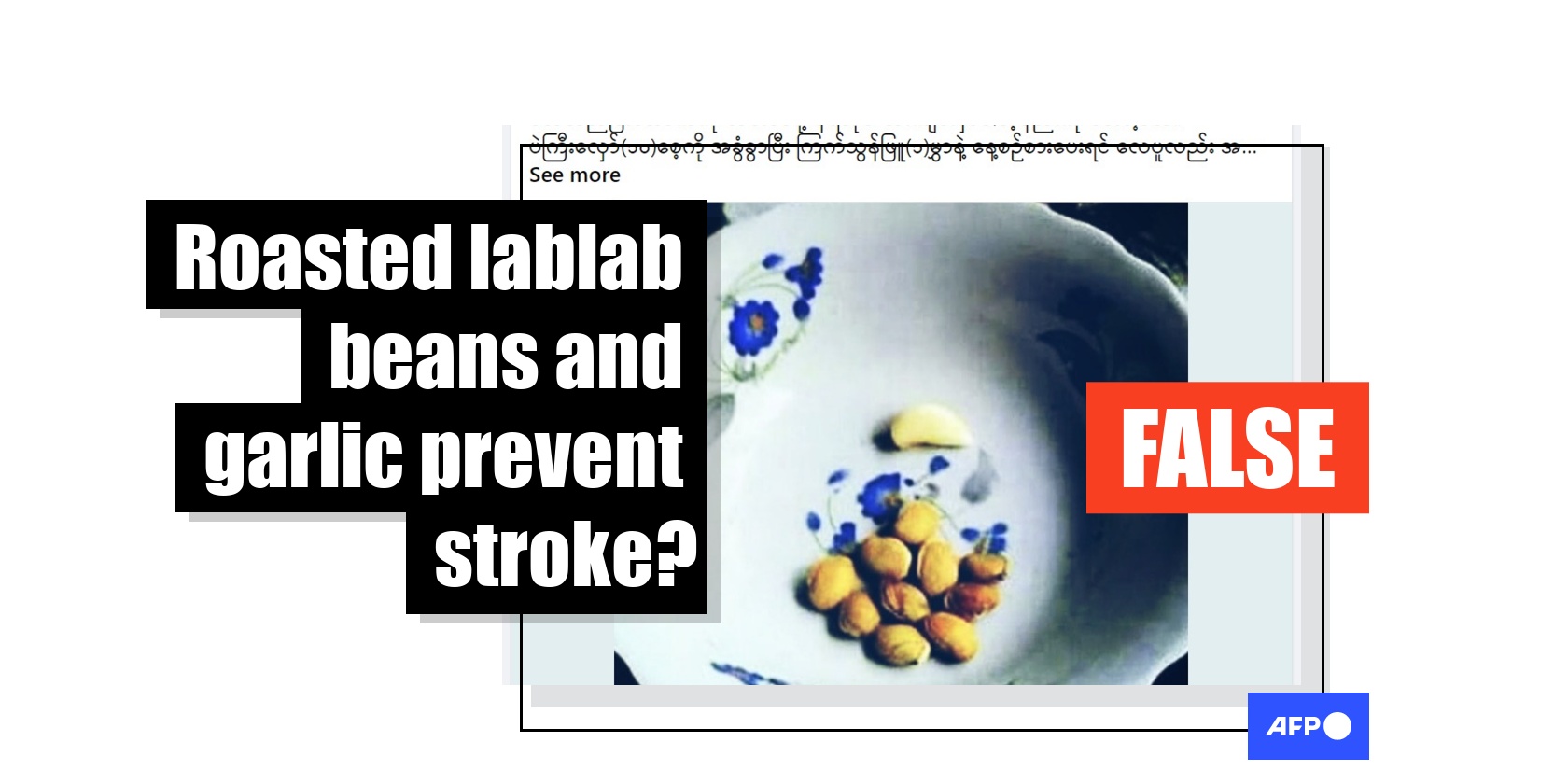
False posts that beans and garlic prevent strokes mischaracterise the condition
- This article is more than two years old.
- Published on October 5, 2023 at 08:43
- 2 min read
- By AFP Thailand
"If you don't want to have a stroke, eat this every day," reads a Burmese-language Facebook post shared more than 400 times since it was published on June 28.
It features an image of a bowl with what appears to be roasted lablab beans -- a popular snack in Myanmar -- and a clove of garlic.
"If the gas inside your gut goes down through the body, you will be healthy. But it's not good for your health if the hot gas goes towards the upper body," the post goes on to say.
"If you peel ten roasted lablab beans, and eat them with one clove of garlic every day, the gas will flow the right way, then you don't have to worry about having any stroke."

A similar claim was shared hundreds of times elsewhere on Facebook here, here and here, and in blogs here, here and here.
These posts say the purported remedy originated in traditional Burmese medicine.
Home remedies soared in popularity in Myanmar after medical staff joined a civil disobedience movement to protest the military coup.
But strokes actually occur in the brain and experts say the condition is prevented through healthy lifestyle changes -- not with a diet of beans and garlic.
No scientific evidence
A stroke is also called a "brain attack", according to an information page about the condition here from the US Centers for Disease Control and Prevention (CDC) (archived link).
It occurs "when something blocks blood supply to part of the brain or when a blood vessel in the brain bursts."
"In either case, parts of the brain become damaged or die. A stroke can cause lasting brain damage, long-term disability, or even death."
Responding to claims that consuming lablab beans and garlic prevents strokes, CDC spokesman Nick Spinelli told AFP on September 27: "There is no current evidence in scientific literature that this is true."
A stroke can be prevented by avoiding "behavioural risk factors", Dr Margaret Harris of the World Health Organization separately told AFP on August 31.
These include stopping tobacco use and avoiding harmful use of alcohol, reducing salt in the diet, eating more fruit and vegetables and regular physical activity, she said.
AFP has previously debunked misinformation about strokes here, here and here.
Copyright © AFP 2017-2026. Any commercial use of this content requires a subscription. Click here to find out more.
Is there content that you would like AFP to fact-check? Get in touch.
Contact us
